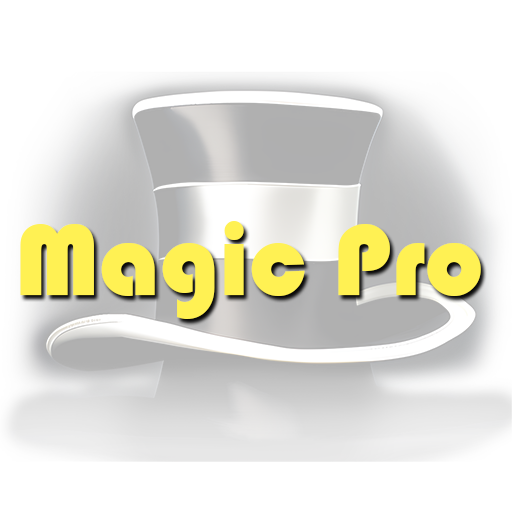The Magic Behind Magic Words: A Deep Dive into Their Origins and Significance
Magic, with its aura of mystery and wonder, has been an important art form for millennia. But it's not just the deft sleight of hand or intricate illusions that hold our attention; the words spoken by magicians are equally enchanting. The incantations, phrases, and exclamations that punctuate their performances have storied pasts, each carrying its own tale of origin and evolution. Let's explore the history and significance of some of the most iconic magic words and the illustrious magicians associated with them.
1. "Abracadabra"
Arguably the most famous magic word, "Abracadabra" dates back to the ancient Romans. Found inscribed on amulets, it was believed to possess healing properties, especially against malaria. Some posit that its roots are Aramaic, translating roughly to "I create as I speak." This offers a fitting meaning for a term synonymous with conjuring. It emphasizes the magician's ability to bring imagination to reality merely by uttering a word.
2. "Hocus Pocus"
"Hocus Pocus" is another phrase that conjures images of wizards and enchanters. Its exact origin is disputed. One theory suggests it's a parody of the Latin liturgy used in the Eucharist, "Hoc est corpus meum," which translates to "This is my body." By the 17th century, it had become intrinsically linked with magic, with one of the era's famous conjurers even adopting it as his stage name, 'Hocus Pocus Junior'.
3. "Alakazam"
The origins of "Alakazam" are a bit murkier. The word carries an exotic, oriental allure, possibly inspired by the Middle East's rich tradition of mysticism and magic. It's not directly associated with a particular magician but has become a staple in popular culture, representing mysterious transformative power.
4. "Presto"
Derived from the Italian word for "quick", "Presto" is both a command and a promise. It's the magician's assurance that something astounding will happen swiftly. This term entered the magical lexicon from the world of music, where it denotes a fast tempo. Its transition to magic was seamless, emphasizing the speed and surprise of a trick's culmination.
5. "Sim Sala Bim"
This phrase owes its fame to the Danish magician Dante, one of the 20th century's most prominent performers. Dante toured the world with his show, "Sim Sala Bim," named after his signature phrase. The origins of the phrase are somewhat nebulous, but it's believed to have been inspired by a Scandinavian children's song. It's a testament to Dante's influence that a relatively obscure phrase became globally recognized.
6. "Open Sesame"
Steeped in rich literary history, "Open Sesame" originates from the tale of "Ali Baba and the Forty Thieves" in One Thousand and One Nights. As the magical password to open the thieves' den, it symbolizes unlocking hidden treasures or revealing secrets. Magicians have occasionally employed it, emphasizing the revelatory nature of their art.
7. "Shazam"
While not a traditional magician, the fictional superhero's name deserves a mention. Billy Batson transforms into Captain Marvel (or Shazam) by uttering this magic word. It's an acronym of six "immortal elders": Solomon, Hercules, Atlas, Zeus, Achilles, and Mercury.
The Evolution and Role of Magic Words
Magic words are more than just linguistic accessories. They encapsulate the essence of the trick and amplify its impact. They create anticipation, suspense, and engagement. The auditory cue, often delivered in an emphatic, dramatic manner, primes the audience for the visual spectacle about to unfold.
Over time, the relationship between magic and its accompanying vocabulary has evolved. In ancient times, words carried genuine spiritual and protective significance. Their utterance was believed to invoke deities, repel malevolent forces, or manifest desires.
As the line between religion, mysticism, and entertainment became more defined, the role of magic words transitioned from spiritual incantations to theatrical tools. The likes of Houdini, Blackstone, and Copperfield might not have believed in the literal power of their words, but they recognized their psychological impact.
Famous Magicians and Their Catchphrases
Several magicians are inextricably linked with their signature phrases. David Copperfield, one of the most commercially successful magicians, often emphasized the narrative over the incantation. However, his dramatic delivery turned statements like "We're going to make the Statue of Liberty disappear" into magic words in their own right.
Harry Blackstone Sr., a contemporary of Houdini and a colossal figure in 20th-century magic, is associated with the endearing "Say the magic word" before inviting audience participation, emphasizing the communal nature of his art.
__________
Magic words, like the tricks they accompany, weave a spell on their audience. Their origins, spanning ancient civilizations, religious rituals, and literary classics, add layers of depth to their allure. While modern magicians recognize that the words hold no intrinsic power, their ability to evoke emotion and enhance the experience remains undiminished. In the hands of a skilled performer, a simple phrase can become the gateway to a world of wonder, underlining the timeless appeal of magic in all its forms.

